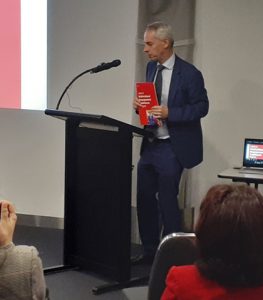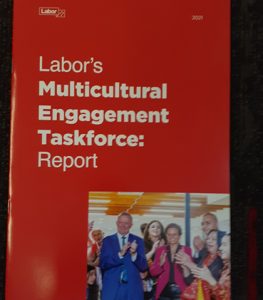Labor sets out multicultural priorities
More support for migrants starting businesses, better access to government services and information as well as a greater voice for diverse communities are among the main recommendations in an Australian Labor Party report into multicultural issues in Australia.
‘Labor’s Multicultural Engagement Taskforce Report’ is the result of consultation with communities aimed at improving policies and services for Australia’s multicultural communities.
 The document effectively amounts to an election manifesto on multicultural policies as speculation increases that the federal coalition government will call a general election sooner rather than later.
The document effectively amounts to an election manifesto on multicultural policies as speculation increases that the federal coalition government will call a general election sooner rather than later.
The report focuses on business, recommending more support for diverse communities in the areas of small business, entrepreneurship and innovation, noting that migrants and refugees were twice as likely as other Australians to start a business.
It also commits a future Labor government to improve access to government services, especially COVID-related information and services; and also a whole of government strategy for translations and a roadmap for digital government services tailored for diverse communities.
The report also promises one-to-one in person assistance for each essential service and a nuanced CALD workforce strategy.
It also commits to tackle a rise in racism and right-wing extremism that poses a potential threat to the safety of CALD communities.
In launching the report. Opposition Leader Anthony Albanese said he realised Labor needed to listen to communities to formulate policy and commissioned the taskforce as a result.
 “We asked why Australia was the most successful multicultural country in the world and we asked: what can we do better? The report is the culmination of that work,” he said.
“We asked why Australia was the most successful multicultural country in the world and we asked: what can we do better? The report is the culmination of that work,” he said.
“It’s a fantastic report. The taskforce engaged with hundreds of participants – much of it virtually because of COVID restrictions.
“We consulted with communities and identified service gaps.”
Mr Albanese said multicultural communities have “contributed so much to what we now call modern Australia”.
He said Labor’s tradition of supporting multiculturalism goes back 1973 and the Racial Discrimination Act – but that there have been recent attempts to weaken it.
“I want to not just defend multiculturalism but step forward, embrace and take advantage and benefit from it,” Mr Albanese said.
“There is an opportunity for Australia to become a microcosm and example for the world of how – with a diversity of backgrounds, ethnicities or religions, and with respect for each other – we can all be enriched.
“What the report does is look at CALD communities and engage with them. We asked: ‘what improvements can be made’. We came up with recommendations that will be turned into practical policies.
“National governments should work with organisations and the leaders of communities to benefit those communities and therefore the whole country.
“With the exception of our first nation peoples, we are all or the sons or daughters of migrants. We’ve built a great nation founded on multiculturalism but we can do better.
“We plan to reach out to established and emerging communities to develop a more inclusive society, a fairer society and forward-looking society. That is our challenge,” Mr Albanese said.












